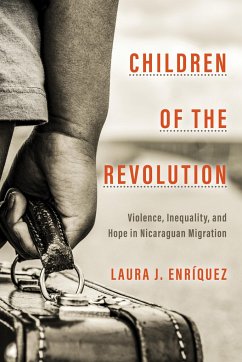"Andrea, Silvia, Ana, and Pamela were impoverished youth when the Sandinista revolution took hold in Nicaragua in 1979. They attained adolescence and young adulthood against the backdrop of a war and economic crisis. But the revolution gave them hope of a better future - if not for themselves, then for their children. When it became clear that it would be difficult to offer the next generation real social mobility in Nicaragua, they chose to emigrate to make it possible. Children of the Revolution tells these four women's stories from childhood to being immigrants in Italy, where they sought that brighter future. In recounting their experiences in their native country and abroad, Laura J. Enrâiquez's compassionate account highlights the particularities of each woman's narrative, and shows how their lives were shaped by social factors such as their class, gender, race, ethnicity, and immigration status. In so doing, Enrâiquez considers the long-running debate concerning the relationship between agency and social structures. The book illustrates that even when social structures enable agency, the options may be limited and the actions selected will be shaped by one's social position. In addition to telling Andrea, Silvia, Ana, and Pamela's stories, Enrâiquez also describes the distinct lives that their children, and now grandchildren, lead. She demonstrates how the women's work abroad provided opportunities for their families that they themselves never had. Hence, these stories reveal that even when a revolution fails to fundamentally transform a society in a long-lasting way, seeds of change may remain behind"--








